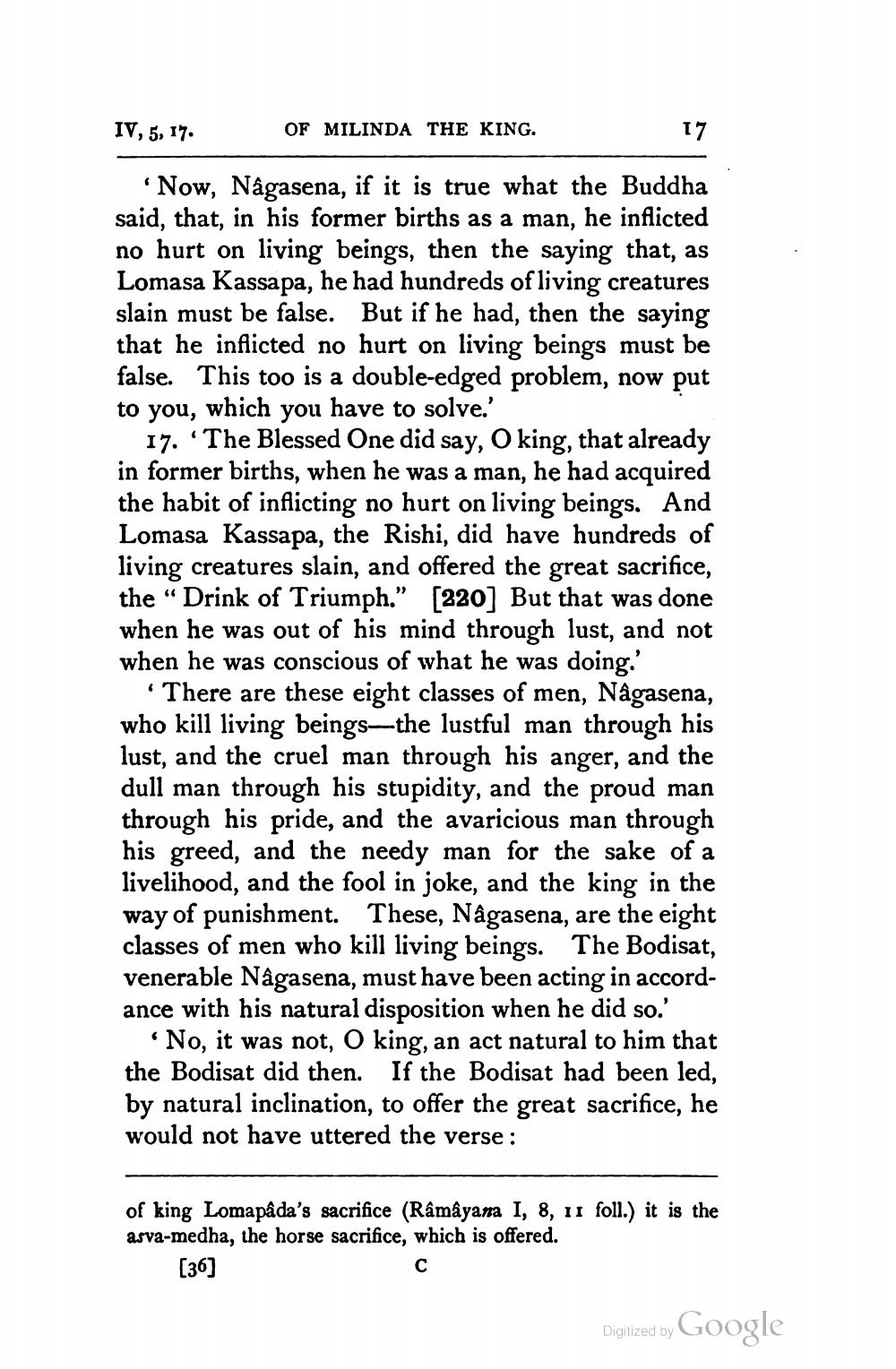________________
IV, 5, 17.
'Now, Nâgasena, if it is true what the Buddha said, that, in his former births as a man, he inflicted no hurt on living beings, then the saying that, as Lomasa Kassapa, he had hundreds of living creatures slain must be false. But if he had, then the saying that he inflicted no hurt on living beings must be false. This too is a double-edged problem, now put to you, which you have to solve.'
17. 'The Blessed One did say, O king, that already in former births, when he was a man, he had acquired the habit of inflicting no hurt on living beings. And Lomasa Kassapa, the Rishi, did have hundreds of living creatures slain, and offered the great sacrifice, the "Drink of Triumph." [220] But that was done when he was out of his mind through lust, and not when he was conscious of what he was doing.'
OF MILINDA THE KING.
17
'There are these eight classes of men, Nâgasena, who kill living beings-the lustful man through his lust, and the cruel man through his anger, and the dull man through his stupidity, and the proud man through his pride, and the avaricious man through his greed, and the needy man for the sake of a livelihood, and the fool in joke, and the king in the way of punishment. These, Nâgasena, are the eight classes of men who kill living beings. The Bodisat, venerable Nâgasena, must have been acting in accordance with his natural disposition when he did so.'
'No, it was not, O king, an act natural to him that the Bodisat did then. If the Bodisat had been led, by natural inclination, to offer the great sacrifice, he would not have uttered the verse:
of king Lomapâda's sacrifice (Râmâyana I, 8, 11 foll.) it is the asva-medha, the horse sacrifice, which is offered.
[36]
C
Digitized by
Google




